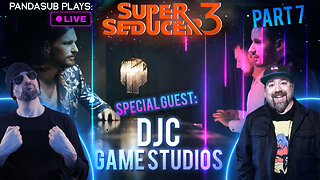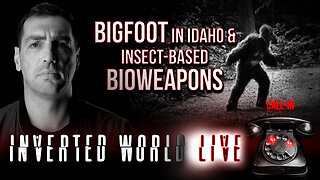Premium Only Content

Jesus Christ Never Existed
Source:
https://youtu.be/ZftML6pAv7E
This video challenges the historical existence of Jesus Christ, arguing that claims of supernatural beings and miraculous activities require extraordinary evidence. The speaker asserts that the burden of proof lies with those making such claims, not with those who question them.
Key arguments and points made in the video include:
Lack of Historical Evidence: The video claims there are no physical artifacts from the first century related to Jesus, nor any original Gospels or epistles. It also states that the canonical Gospels are not quoted verbatim in any historical record before the end of the second century.
Questioning Historical References: The speaker discusses how historians like Pliny the Younger, Suetonius, and Tacitus are often referenced to justify Jesus's existence, but their entries are brief and refer to "Christus" or "the Christ," which is a title, not a name.
Influence of Reformation Scholars: The video suggests that the questioning of Jesus's historical existence began with Protestant scholars during the Reformation, who examined texts and rituals, seeking to find the "real man" behind what they considered pagan accretions.
Jesus as a Gnostic Myth: The video proposes that the story of Jesus is a "very old powerful beautiful gnostic myth," an initiatory allegory about gnosis (wisdom) that was later fleshed out and given a geographical and historical setting. It suggests that political overlays benefited the Roman world, allowing the Roman Empire to manipulate the story for its own ends.
Critique of Blind Faith: The speaker criticizes the idea of believing in something "without a stitch of evidence because it's faith," while simultaneously demanding a "mountain of evidence" for alternative perspectives.
Call for Experiential Spirituality: The video advocates for moving away from literalism and blind belief towards a "new form of experiential direct experience" in spirituality, connecting to an ancient evolutionary current that includes pagans, Pythagoreans, and Gnostics.
-
 2:21:49
2:21:49
PandaSub2000
11 hours agoSuper Seducer 3 - Part VII (w/DJC Game Studios) | PANDASUB PLAYS (Edited Replay)
14.1K1 -
 24:36
24:36
GritsGG
14 hours agoINSANE Warzone Solo PR! 40 Bomb Dropped!
8.72K2 -
 1:54:13
1:54:13
The Michelle Moore Show
1 day ago'Three Protocols For Miraculous Healing' Guest, Dr. Margaret Aranda: The Michelle Moore Show (Nov 18, 2025)
38.6K12 -
 56:25
56:25
ThisIsDeLaCruz
1 day ago $1.66 earnedHow Benson Boone’s Engineer Mixes From a Room You Never See
8.66K1 -
 6:10
6:10
Blabbering Collector
13 hours agoSaudi Arabia To Buy Warner Bros, Daniel Radcliffe Comments On HBO Harry Potter
11.8K4 -
 LIVE
LIVE
Lofi Girl
3 years agolofi hip hop radio 📚 - beats to relax/study to
271 watching -
 36:57
36:57
The Pascal Show
1 day ago $2.56 earned'THERE'S NOTHING TO HIDE?!' Trump SUDDENLY Urges House Republicans To Vote Release Epstein Files
10.6K2 -
 2:50:17
2:50:17
FreshandFit
15 hours agoClavicular Rates The Entire Panel’s Looks & They Get TRIGGERED
312K126 -
 2:22:44
2:22:44
Badlands Media
16 hours agoDevolution Power Hour Ep. 408: Immigration Panic, Epstein Optics & the Narrative Unraveling
106K24 -
 2:06:57
2:06:57
Inverted World Live
10 hours agoBigfoot in Idaho & Insect-Based Bioweapons | Ep. 144
94.9K7